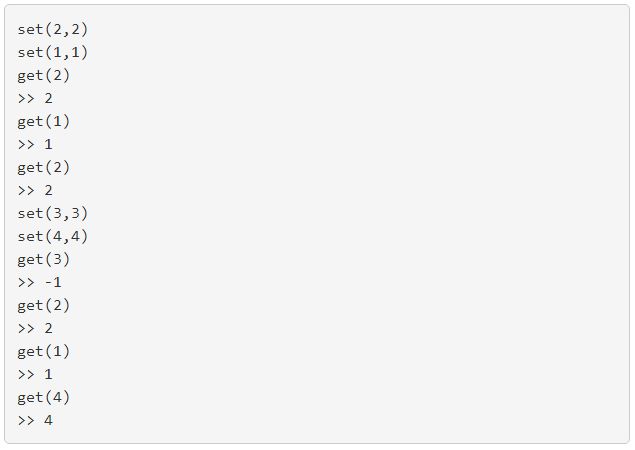- BaiduSitemap - Typecho站点地图生成与多搜索引擎推送插件
独立开发者阿乐
原创javascript云计算自动化大数据数据分析
文章目录BaiduSitemap-Typecho站点地图生成与多搜索引擎推送插件✨功能特点插件架构核心模块文件结构安装方法方法一:手动安装方法二:Git克隆⚙️配置说明站点地图基本设置搜索引擎配置百度搜索引擎必应(Bing)搜索引擎谷歌(Google)搜索引擎使用指南站点地图访问手动操作站点地图包含内容高级功能图片索引优化推送状态监控技术实现详解站点地图生成流程搜索引擎推送机制缓存机制❓常见问题站
- 【Vue】 keep-alive缓存组件实战指南
Vesper63
vue.js缓存前端
Vue中keep-alive的使用详解keep-alive是Vue内置的一个抽象组件,用于缓存不活跃的组件实例,避免重复渲染,从而优化性能。基本用法核心功能组件缓存:当组件切换时,不会被销毁状态保留:组件的所有状态(数据、DOM状态等)会被保留生命周期:触发特有的activated和deactivated钩子使用场景标签页切换路由视图缓存需要保存表单数据的场景组件频繁切换但需要保持状态属性配置1.
- 随机存储器有哪些,只读存储器又有哪些
我推是大富翁
计算机组成原理计算机组成原理
一、随机存储器(RAM,易失性,断电数据丢失)1.静态RAM(SRAM)特点:用触发器存储数据,无需刷新,速度极快(纳秒级),但容量小、成本高。用途:CPU缓存(如L1/L2/L3Cache)。2.动态RAM(DRAM)特点:用电容存储,需定期刷新,速度较慢(微秒级),容量大、成本低。变种:SDRAM:同步DRAM(如DDR3/DDR4/DDR5,电脑内存条)。VRAM:显卡专用显存,支持高速图像
- 【项目实战】Redis使用场景之基于Redis实现分布式限流
本本本添哥
002-进阶开发能力003-数据库redis分布式数据库
一、技术概览1.1定义分布式限流是指在分布式系统中限制请求的速率,以保护后端服务不被过多的请求压垮。它可以帮助我们控制系统的负载,保证服务的稳定性。Redis是一个高性能的键值存储系统,常用于缓存、消息队列和实时分析等场景。由于其支持丰富的数据结构和原子操作,非常适合用来实现分布式限流。专业术语:令牌桶算法(TokenBucket):一种流量整形算法,允许突发流量但不超过平均速度。漏桶算法(Lea
- 【IO优化】磁盘IO优化
flyair_China
云计算
一、磁盘I/O优化的方案1.1、硬件与存储架构优化存储介质升级SSD/NVMe替代HDD:随机读写性能提升100倍,延迟降至微秒级(HDD寻道时间约5-10ms,SSD/sys/block/nvme0n1/queue/scheduler#NVMe调度器设置1.3、内核级缓存与预取策略脏页刷新控制参数调整:#降低后台刷脏阈值(避免突发I/O)echo5>/proc/sys/vm/dirty_back
- Redis在企业实战开发中的核心作用:从缓存到分布式系统的关键支柱
LambdaCat
缓存redisjava
在高并发、分布式系统成为主流的今天,Redis已成为企业技术栈中不可或缺的组件。据2024年最新统计,超过82%的互联网企业在生产环境中使用Redis,处理着每秒数十万甚至上百万级的请求在现代软件开发领域,高性能、高并发和可扩展性已成为系统设计的核心要求。面对海量用户和实时数据处理需求,传统数据库在性能方面逐渐显现瓶颈。正是在这样的背景下,Redis(RemoteDictionaryServer)
- 七、SPringCloud中间件
@平常心~~~
springcloud中间件spring
1.Nacos(配置数据库)注册中心配置中心注册中心:服务治理:引入注册中心(将服务注册到注册中心)1.注册中心:存的是服务提供者的服务,和可以被推送的服务2.服务消费者:从注册中心订阅服务,既可以拉取服务,也可以推送变更3.服务提供者:向注册中心提供服务的端口号,IP等,心跳续约:隔一段时间会向注册中心推送新的服务注册中心挂断,不会立即断开连接,除非服务提供者改变IP,有缓存用户如何挑选实例(服
- 【问题记录】npm create vue@latest报错
菜鸟级后端
问题记录npmvue.js前端
1,错误日志npmerrorcodeEPERMnpmerrorsyscallmkdirnpmerrorpathD:\ProgramFiles\nodejs\node_cache\_cacachenpmerrorerrnoEPERMnpmerrorFetchError:Invalidresponsebodywhiletryingtofetchhttps://registry.npmjs.org/cr
- 【NodeJs】【npm】npm安装electron报错
果壳~
npmelectron前端
解决问题npm安装electron报错一般来说是镜像源的问题。electron的镜像源与一般的vue之类的镜像源地址不一样需要单独配置。npm读取的全局配置一般是在C:\Users\{用户}\.npmrc这个配置文件中。如果你找不到你的配置文件可以执行如下命令,#执行后会直接用txt打开你的配置文件进行修改保存即可npmconfigeditcache=D:\Develop\nodeJs\node_
- 什么是DNS缓存投毒?有哪些防御措施?
在互联网的浩瀚海洋中,DNS(域名系统)如同一座灯塔,为用户指引着通往各个网站的路径。它将人们易于记忆的域名转换为计算机能够识别的IP地址,使得网络世界得以顺畅运转。然而,这座灯塔却面临着被恶意篡改的风险,DNS缓存投毒便是其中一种极具危害性的攻击手段。什么是DNS缓存投毒?DNS缓存投毒,也被称为DNS欺骗或DNS缓存污染,是一种通过向DNS缓存中输入错误信息,使DNS查询返回错误响应,从而将用
- Python装饰器深度解析:提升代码可读性与复用性
天天进步2015
pythonpython开发语言
Python装饰器(Decorator)是提升代码可读性与复用性的强大工具。无论是日志记录、权限校验、性能分析还是缓存机制,装饰器都能让你的代码更加优雅、简洁和高效。本文将深入解析Python装饰器的原理、常见用法、进阶技巧与最佳实践,助你写出更具专业水准的Python代码。目录装饰器的基本原理函数装饰器的常见用法带参数的装饰器类装饰器与方法装饰器装饰器的嵌套与组合进阶技巧:保留元信息与类型提示装
- 缓存和数据库一致性问题
ezreal_pan
后端Go缓存数据库
更新数据库后直接更新缓存方案直接更新缓存的核心优势减少缓存穿透风险:直接设置缓存可以避免缓存删除后短期内的缓存穿透问题(即大量请求穿透到数据库)。尤其在高频更新场景下,连续写入时可减少缓存未命中的概率。数据一致性优先:直接获取最新的数据库记录后立即更新缓存,确保缓存数据与数据库强一致,避免传统"删除缓存+后续查询重建"模式可能产生的短暂数据不一致窗口。理论上直接更新缓存是可以带来上述的这些有点。尤
- 【AI成长会】针对高并发场景下基于用户ID的聊天接口优化方案,包含5个核心方法
以下是针对高并发场景下基于用户ID的聊天接口优化方案,包含5个核心方法、对比表格及权威来源:5大优化方案1.索引优化机制:对user_id字段添加B+树索引,联合查询字段使用覆盖索引(如(user_id,timestamp))优化点:减少全表扫描,提升索引命中率适用场景:基础优化,所有规模均需2.缓存层引入(Redis/Memcached)机制:使用Redis存储用户最近聊天记录(Key:user
- HTTP 请求基础知识
污领巾
http网络协议网络
提示:文章写完后,目录可以自动生成,如何生成可参考右边的帮助文档文章目录前言HTTP请求方法GETPOSTPUTDELETE其他方法HTTP请求结构常用请求头实际应用示例响应状态码前言HTTP(HypertextTransferProtocol)是互联网上应用最广泛的协议之一,用于客户端和服务器之间的通信。HTTP请求方法GET用途:请求获取指定资源特点:参数通过URL传递可以被缓存有长度限制不应
- keep-alive实现原理及Vue2/Vue3对比分析
年纪轻轻就扛不住
VUEvue.js前端javascript
一、keep-alive基本概念keep-alive是Vue的内置组件,用于缓存组件实例,避免重复渲染。它具有以下特点:抽象组件:自身不会渲染DOM,也不会出现在父组件链中包裹动态组件:缓存不活动的组件实例,而不是销毁它们生命周期:提供activated和deactivated钩子函数二、keep-alive核心实现原理1.基本工作流程判断当前组件是否需要缓存生成组件唯一key缓存组件实例在被包裹
- 力扣 Hot 100 刷题记录 - LRU 缓存
a李兆洋
leetcode缓存算法
力扣Hot100刷题记录-LRU缓存题目描述LRU缓存是力扣Hot100中的一道经典题目,题目要求如下:请你设计并实现一个满足LRU(最近最少使用)缓存约束的数据结构。实现LRUCache类:LRUCache(intcapacity):以正整数作为容量capacity初始化LRU缓存。intget(intkey):如果关键字key存在于缓存中,则返回关键字的值,否则返回-1。voidput(int
- pnpm命令
文章目录1.卸载指定包2.安装指定版本包3.清除pnpm的缓存4.其他相关操作5.版本选择语法6.工作空间示例(monorepo)7.注意事项在pnpm中管理包的特定版本安装和卸载操作如下:1.卸载指定包#卸载单个包pnpmremove#示例:卸载lodashpnpmremovelodash#卸载多个包pnpmremove#全局卸载pnpmremove--global2.安装指定版本包#精确安装特
- Ehcache、Caffeine、Spring Cache、Redis、J2Cache、Memcached 和 Guava Cache 的主要区别
MonkeyKing.sun
springredismemcached
主流缓存技术Ehcache、Caffeine、SpringCache、Redis、J2Cache、Memcached和GuavaCache的主要区别,涵盖其架构、功能、适用场景和优缺点等方面:Ehcache类型:本地缓存(JVM内存缓存)特点:轻量级,运行在JVM内部,易于集成到Java应用中。支持堆内、堆外和磁盘缓存,适合处理中小型数据集。提供丰富的缓存配置,如TTL(生存时间)、TTI(空闲时
- 使用Guava Cache做缓存
randy.lou
guava缓存spring
文章目录1.概述1.1适用场景1.2Helloworld2.数据加载使用2.1CacheLoader.load(Kkey)2.2CacheLoader.loadAll(keys)批量加载2.3Callable.call2.4手工写入3.缓存清除3.1基于maximumSize的清除3.2基于maximumWeight的清除3.3基于时间的清除3.4使用WeakReferenct、SoftRefer
- 本地缓存之Guava Cache
一介布衣+
中间件缓存guavaspring
1.GuavaCache是什么简介Guavacache是一个支持高并发的线程安全的本地缓存。多线程情况下也可以安全的访问或者更新Cache。这些都是借鉴了ConcurrentHashMap的结果。不过,guavacache又有自己的特性当cache中不存在要查找的entry的时候,它会自动执行用户自定义的加载逻辑,加载成功后再将entry存入缓存并返回给用户未过期的entry,如果不存在或者已过期
- SpringBoot 整合 Guava Cache 实现本地缓存
m0_74824170
springbootguava缓存
目录1、背景2、手写一个简单的本地缓存3、GuavaCache简介4、GuavaCache使用4.1、创建LoadingCache缓存4.2、创建CallableCache缓存4.3、可选配置分析4.3.1、缓存的并发级别4.3.2、缓存的初始容量设置4.3.3、缓存失效回收策略4.3.3.1、基于容量/权重回收4.3.3.2、定时回收4.3.3.3、基于引用回收4.3.3.4、显式清除4.3.4
- LRU缓存C++
monicaaaaan
乐扣刷题缓存c++spring
请你设计并实现一个满足LRU(最近最少使用)缓存约束的数据结构。实现LRUCache类:LRUCache(intcapacity)以正整数作为容量capacity初始化LRU缓存intget(intkey)如果关键字key存在于缓存中,则返回关键字的值,否则返回-1。voidput(intkey,intvalue)如果关键字key已经存在,则变更其数据值value;如果不存在,则向缓存中插入该组k
- Google Guava Cache高效本地缓存
boonya
架构师Guava高效缓存策略
目录GuavaCache使用需求和场景需求场景缓存设置缓存的并发级别缓存的初始容量设置设置最大存储缓存清除策略基于存活时间的清除策略基于容量的清除策略基于权重的清除策略显式清除基于引用的清除策略数据内存加载CacheLoadingCacheGuavaCache使用需求和场景GuavaCache是GoogleFuava中的一个内存缓存模块,用于将数据缓存到JVM内存中。需求提供了get、put封装操
- 《高并发系统性能优化三板斧:缓存 + 异步 + 限流》
猕员桃
10篇关于分布式和高并发性能优化缓存
高并发系统性能优化三板斧:缓存+异步+限流引言在互联网应用的高并发场景下,系统性能面临巨大挑战。以某电商平台会员活动为例,活动期间瞬时QPS可达10万+,若未进行有效优化,服务器将迅速崩溃。本文从缓存、异步、限流三个核心维度,结合实际案例详细解析高并发系统的性能优化策略,并分享全链路压测与问题定位的实战经验。一、缓存策略分层:从本地到分布式的立体防护1.1本地缓存选型与实战(Caffeine)本地
- 《Redis高并发优化策略与规范清单:从开发到运维的全流程指南》
猕员桃
redis运维数据库
Redis高并发优化策略与规范清单:从开发到运维的全流程指南在互联网应用的后端架构中,Redis凭借其高性能、高并发的特性,成为缓存和数据存储的首选方案。无论是电商抢购、社交平台的点赞计数,还是在线旅游平台的实时数据查询,Redis都在支撑着海量请求的快速处理。然而,随着业务规模的扩大和流量的激增,Redis在高并发场景下也面临诸多挑战,如性能瓶颈、内存溢出、缓存雪崩等。为了确保Redis在高并发
- 解决vue移动端哈希模式页面返回滚动条置顶问题
【03】
vue笔记vue.jsjavascript
问题:如a页面为列表,点击列表进入b页面,再返回a页面,a页面的滚动条置顶了解决思路:使用keep-alive缓存页面,在路由跳转时存储滚动条高度,在页面显示是设置滚动条高度全局js文件GFN.jsexportdefault{/***储存列表滚动条高度*@paramt*/saveScroller:(t)=>{t.scrollY=t.$refs.v_list.scroller.scrollTop},
- 探秘阿里云Tair KVCache:大模型推理的加速引擎
云资源服务商
阿里云云计算人工智能
一、引言近年来,人工智能领域发展迅猛,大语言模型(LLM)不断取得突破,其应用场景也日益广泛。从智能客服到内容生成,从智能写作到智能翻译,大语言模型正在深刻地改变着我们的生活和工作方式。随着模型规模的不断扩大和推理需求的日益增长,大模型推理过程中的显存瓶颈问题逐渐凸显,成为制约其发展和应用的关键因素。在大模型推理中,KVCache技术作为一种优化手段,通过缓存历史Token的Key/Value向量
- 达人评测 锐龙9 8940HX和r9 7940HX差距大不大
ThantZinHtay
cpu
R97940HX采用了Zen4架构,5nm制作工艺8核16线程,主频2.4GHz,最高睿频5.2GHz三级缓存64MB功耗55w选R97940HX还是锐龙98940HX这些点很重要http://www.adiannao.cn/dyR98940HX采用Zen5架构和5nm生产工艺16核心32线程基础频率为2.3GHz,最高加速频率5.3GHz三级缓存为64MB热设计功耗(TDP)55W
- python实现读取文件的指定某行内容
Fitz1318
Python3学习python
python实现读取文件的指定某行内容最近有一个需求就是读取一个文件中的指定某行的内容,现将方法记录如下importlinecache#这里填写你自己的文件位置和行号text=linecache.getline("../TestFile/test_C1.json",2)print(text)
- Nginx 核心功能
?ccc?
nginx服务器网络
目录一:正向代理1:编译安装Nginx(1)安装支持软件(2)创建运行用户、组和日志目录(3)编译安装Nginx(4)添加Nginx系统服务2:配置正向代理二:反向代理1:配置nginx七层代理2:配置nginx四层代理三:Nginx缓存1:缓存功能的核心原理和缓存类型2:代理缓存功能设置四:Nginxrewrite和正则一:正向代理正向代理(ForwardProxy)是一种位于客户端和原始服务器
- java责任链模式
3213213333332132
java责任链模式村民告县长
责任链模式,通常就是一个请求从最低级开始往上层层的请求,当在某一层满足条件时,请求将被处理,当请求到最高层仍未满足时,则请求不会被处理。
就是一个请求在这个链条的责任范围内,会被相应的处理,如果超出链条的责任范围外,请求不会被相应的处理。
下面代码模拟这样的效果:
创建一个政府抽象类,方便所有的具体政府部门继承它。
package 责任链模式;
/**
*
- linux、mysql、nginx、tomcat 性能参数优化
ronin47
一、linux 系统内核参数
/etc/sysctl.conf文件常用参数 net.core.netdev_max_backlog = 32768 #允许送到队列的数据包的最大数目
net.core.rmem_max = 8388608 #SOCKET读缓存区大小
net.core.wmem_max = 8388608 #SOCKET写缓存区大
- php命令行界面
dcj3sjt126com
PHPcli
常用选项
php -v
php -i PHP安装的有关信息
php -h 访问帮助文件
php -m 列出编译到当前PHP安装的所有模块
执行一段代码
php -r 'echo "hello, world!";'
php -r 'echo "Hello, World!\n";'
php -r '$ts = filemtime("
- Filter&Session
171815164
session
Filter
HttpServletRequest requ = (HttpServletRequest) req;
HttpSession session = requ.getSession();
if (session.getAttribute("admin") == null) {
PrintWriter out = res.ge
- 连接池与Spring,Hibernate结合
g21121
Hibernate
前几篇关于Java连接池的介绍都是基于Java应用的,而我们常用的场景是与Spring和ORM框架结合,下面就利用实例学习一下这方面的配置。
1.下载相关内容: &nb
- [简单]mybatis判断数字类型
53873039oycg
mybatis
昨天同事反馈mybatis保存不了int类型的属性,一直报错,错误信息如下:
Caused by: java.lang.NumberFormatException: For input string: "null"
at sun.mis
- 项目启动时或者启动后ava.lang.OutOfMemoryError: PermGen space
程序员是怎么炼成的
eclipsejvmtomcatcatalina.sheclipse.ini
在启动比较大的项目时,因为存在大量的jsp页面,所以在编译的时候会生成很多的.class文件,.class文件是都会被加载到jvm的方法区中,如果要加载的class文件很多,就会出现方法区溢出异常 java.lang.OutOfMemoryError: PermGen space.
解决办法是点击eclipse里的tomcat,在
- 我的crm小结
aijuans
crm
各种原因吧,crm今天才完了。主要是接触了几个新技术:
Struts2、poi、ibatis这几个都是以前的项目中用过的。
Jsf、tapestry是这次新接触的,都是界面层的框架,用起来也不难。思路和struts不太一样,传说比较简单方便。不过个人感觉还是struts用着顺手啊,当然springmvc也很顺手,不知道是因为习惯还是什么。jsf和tapestry应用的时候需要知道他们的标签、主
- spring里配置使用hibernate的二级缓存几步
antonyup_2006
javaspringHibernatexmlcache
.在spring的配置文件中 applicationContent.xml,hibernate部分加入
xml 代码
<prop key="hibernate.cache.provider_class">org.hibernate.cache.EhCacheProvider</prop>
<prop key="hi
- JAVA基础面试题
百合不是茶
抽象实现接口String类接口继承抽象类继承实体类自定义异常
/* * 栈(stack):主要保存基本类型(或者叫内置类型)(char、byte、short、 *int、long、 float、double、boolean)和对象的引用,数据可以共享,速度仅次于 * 寄存器(register),快于堆。堆(heap):用于存储对象。 */ &
- 让sqlmap文件 "继承" 起来
bijian1013
javaibatissqlmap
多个项目中使用ibatis , 和数据库表对应的 sqlmap文件(增删改查等基本语句),dao, pojo 都是由工具自动生成的, 现在将这些自动生成的文件放在一个单独的工程中,其它项目工程中通过jar包来引用 ,并通过"继承"为基础的sqlmap文件,dao,pojo 添加新的方法来满足项
- 精通Oracle10编程SQL(13)开发触发器
bijian1013
oracle数据库plsql
/*
*开发触发器
*/
--得到日期是周几
select to_char(sysdate+4,'DY','nls_date_language=AMERICAN') from dual;
select to_char(sysdate,'DY','nls_date_language=AMERICAN') from dual;
--建立BEFORE语句触发器
CREATE O
- 【EhCache三】EhCache查询
bit1129
ehcache
本文介绍EhCache查询缓存中数据,EhCache提供了类似Hibernate的查询API,可以按照给定的条件进行查询。
要对EhCache进行查询,需要在ehcache.xml中设定要查询的属性
数据准备
@Before
public void setUp() {
//加载EhCache配置文件
Inpu
- CXF框架入门实例
白糖_
springWeb框架webserviceservlet
CXF是apache旗下的开源框架,由Celtix + XFire这两门经典的框架合成,是一套非常流行的web service框架。
它提供了JAX-WS的全面支持,并且可以根据实际项目的需要,采用代码优先(Code First)或者 WSDL 优先(WSDL First)来轻松地实现 Web Services 的发布和使用,同时它能与spring进行完美结合。
在apache cxf官网提供
- angular.equals
boyitech
AngularJSAngularJS APIAnguarJS 中文APIangular.equals
angular.equals
描述:
比较两个值或者两个对象是不是 相等。还支持值的类型,正则表达式和数组的比较。 两个值或对象被认为是 相等的前提条件是以下的情况至少能满足一项:
两个值或者对象能通过=== (恒等) 的比较
两个值或者对象是同样类型,并且他们的属性都能通过angular
- java-腾讯暑期实习生-输入一个数组A[1,2,...n],求输入B,使得数组B中的第i个数字B[i]=A[0]*A[1]*...*A[i-1]*A[i+1]
bylijinnan
java
这道题的具体思路请参看 何海涛的微博:http://weibo.com/zhedahht
import java.math.BigInteger;
import java.util.Arrays;
public class CreateBFromATencent {
/**
* 题目:输入一个数组A[1,2,...n],求输入B,使得数组B中的第i个数字B[i]=A
- FastDFS 的安装和配置 修订版
Chen.H
linuxfastDFS分布式文件系统
FastDFS Home:http://code.google.com/p/fastdfs/
1. 安装
http://code.google.com/p/fastdfs/wiki/Setup http://hi.baidu.com/leolance/blog/item/3c273327978ae55f93580703.html
安装libevent (对libevent的版本要求为1.4.
- [强人工智能]拓扑扫描与自适应构造器
comsci
人工智能
当我们面对一个有限拓扑网络的时候,在对已知的拓扑结构进行分析之后,发现在连通点之后,还存在若干个子网络,且这些网络的结构是未知的,数据库中并未存在这些网络的拓扑结构数据....这个时候,我们该怎么办呢?
那么,现在我们必须设计新的模块和代码包来处理上面的问题
- oracle merge into的用法
daizj
oraclesqlmerget into
Oracle中merge into的使用
http://blog.csdn.net/yuzhic/article/details/1896878
http://blog.csdn.net/macle2010/article/details/5980965
该命令使用一条语句从一个或者多个数据源中完成对表的更新和插入数据. ORACLE 9i 中,使用此命令必须同时指定UPDATE 和INSE
- 不适合使用Hadoop的场景
datamachine
hadoop
转自:http://dev.yesky.com/296/35381296.shtml。
Hadoop通常被认定是能够帮助你解决所有问题的唯一方案。 当人们提到“大数据”或是“数据分析”等相关问题的时候,会听到脱口而出的回答:Hadoop! 实际上Hadoop被设计和建造出来,是用来解决一系列特定问题的。对某些问题来说,Hadoop至多算是一个不好的选择,对另一些问题来说,选择Ha
- YII findAll的用法
dcj3sjt126com
yii
看文档比较糊涂,其实挺简单的:
$predictions=Prediction::model()->findAll("uid=:uid",array(":uid"=>10));
第一个参数是选择条件:”uid=10″。其中:uid是一个占位符,在后面的array(“:uid”=>10)对齐进行了赋值;
更完善的查询需要
- vim 常用 NERDTree 快捷键
dcj3sjt126com
vim
下面给大家整理了一些vim NERDTree的常用快捷键了,这里几乎包括了所有的快捷键了,希望文章对各位会带来帮助。
切换工作台和目录
ctrl + w + h 光标 focus 左侧树形目录ctrl + w + l 光标 focus 右侧文件显示窗口ctrl + w + w 光标自动在左右侧窗口切换ctrl + w + r 移动当前窗口的布局位置
o 在已有窗口中打开文件、目录或书签,并跳
- Java把目录下的文件打印出来
蕃薯耀
列出目录下的文件文件夹下面的文件目录下的文件
Java把目录下的文件打印出来
>>>>>>>>>>>>>>>>>>>>>>>>>>>>>>>>>>>>>>>>
蕃薯耀 2015年7月11日 11:02:
- linux远程桌面----VNCServer与rdesktop
hanqunfeng
Desktop
windows远程桌面到linux,需要在linux上安装vncserver,并开启vnc服务,同时需要在windows下使用vnc-viewer访问Linux。vncserver同时支持linux远程桌面到linux。
linux远程桌面到windows,需要在linux上安装rdesktop,同时开启windows的远程桌面访问。
下面分别介绍,以windo
- guava中的join和split功能
jackyrong
java
guava库中,包含了很好的join和split的功能,例子如下:
1) 将LIST转换为使用字符串连接的字符串
List<String> names = Lists.newArrayList("John", "Jane", "Adam", "Tom");
- Web开发技术十年发展历程
lampcy
androidWeb浏览器html5
回顾web开发技术这十年发展历程:
Ajax
03年的时候我上六年级,那时候网吧刚在小县城的角落萌生。传奇,大话西游第一代网游一时风靡。我抱着试一试的心态给了网吧老板两块钱想申请个号玩玩,然后接下来的一个小时我一直在,注,册,账,号。
彼时网吧用的512k的带宽,注册的时候,填了一堆信息,提交,页面跳转,嘣,”您填写的信息有误,请重填”。然后跳转回注册页面,以此循环。我现在时常想,如果当时a
- 架构师之mima-----------------mina的非NIO控制IOBuffer(说得比较好)
nannan408
buffer
1.前言。
如题。
2.代码。
IoService
IoService是一个接口,有两种实现:IoAcceptor和IoConnector;其中IoAcceptor是针对Server端的实现,IoConnector是针对Client端的实现;IoService的职责包括:
1、监听器管理
2、IoHandler
3、IoSession
- ORA-00054:resource busy and acquire with NOWAIT specified
Everyday都不同
oraclesessionLock
[Oracle]
今天对一个数据量很大的表进行操作时,出现如题所示的异常。此时表明数据库的事务处于“忙”的状态,而且被lock了,所以必须先关闭占用的session。
step1,查看被lock的session:
select t2.username, t2.sid, t2.serial#, t2.logon_time
from v$locked_obj
- javascript学习笔记
tntxia
JavaScript
javascript里面有6种基本类型的值:number、string、boolean、object、function和undefined。number:就是数字值,包括整数、小数、NaN、正负无穷。string:字符串类型、单双引号引起来的内容。boolean:true、false object:表示所有的javascript对象,不用多说function:我们熟悉的方法,也就是
- Java enum的用法详解
xieke90
enum枚举
Java中枚举实现的分析:
示例:
public static enum SEVERITY{
INFO,WARN,ERROR
}
enum很像特殊的class,实际上enum声明定义的类型就是一个类。 而这些类都是类库中Enum类的子类 (java.l
